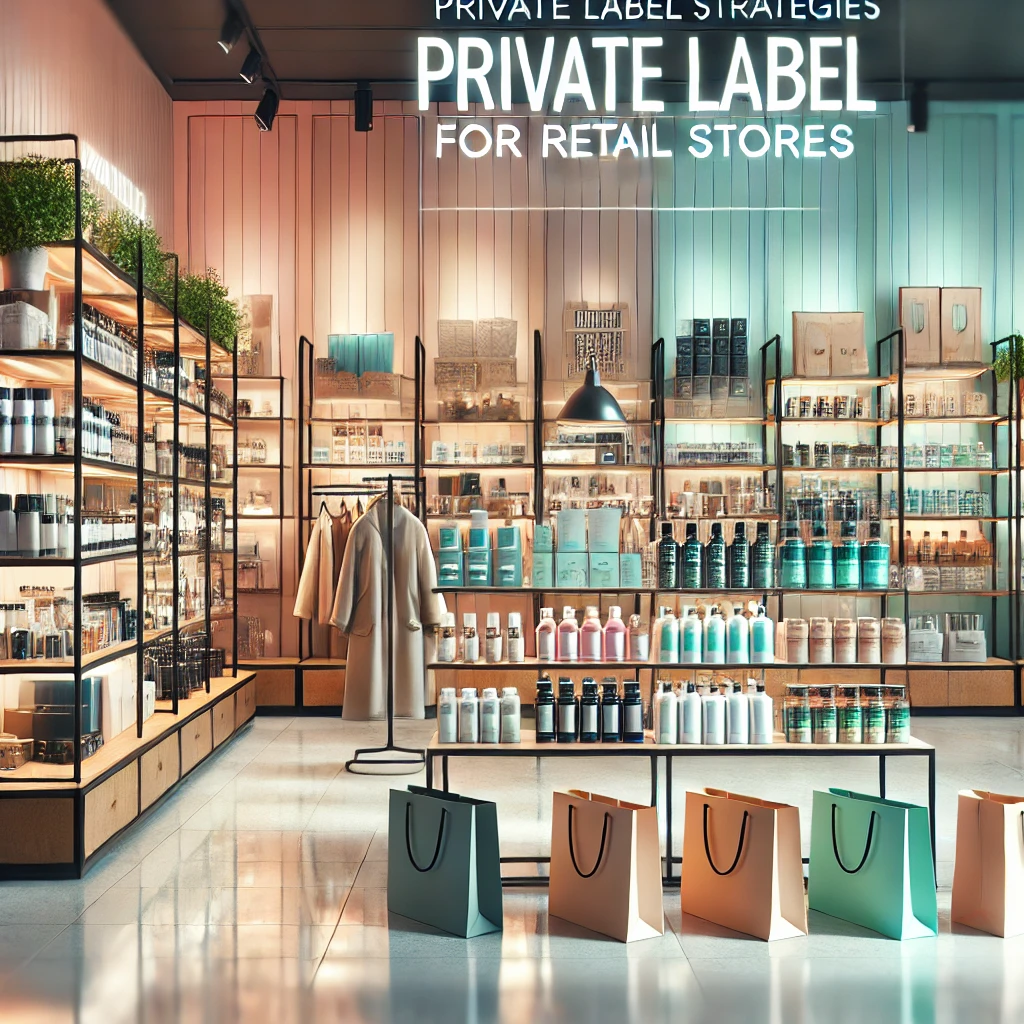Private label strategies are essential for retail stores to boost sales, enhance visibility, and establish unique brand loyalty. Many top retailers are investing heavily in these in-house products, using smart techniques to stand out and win over customers. Here’s how these strategies are changing the game.
Why Private Label Matters in Retail Stores
Retailers are doubling down on private label products for a reason. These strategies:
- Increase Profit Margins: Stores have more control over pricing and costs.
- Boost Customer Loyalty: Unique products draw shoppers who can’t find them elsewhere.
- Brand Differentiation: A strong private label sets retailers apart from competitors.
Private labels in retail stores are no longer a cheap alternative. Today, they represent quality, innovation, and customer-focused experiences.
Building Strong Private Label Strategies
How can a retail store launch or improve its private label brand? These are the critical steps:
Understanding the Target Audience
Successful private label strategies start with understanding the needs and habits of shoppers. Retailers use:
- Market Research: Identify trends and gaps.
- Customer Feedback: Adapt based on what shoppers want.
Product Development & Quality
Quality is a must. Retailers invest in:
- Premium Ingredients: Offering better or equal quality to national brands.
- Sustainability: Using eco-friendly materials appeals to conscious consumers.
Strategic Pricing
Private labels often beat national brands on price, but it’s not all about being the cheapest. Key approaches include:
- Value-Based Pricing: Pricing products based on quality perception.
- Price Tiers: Offering budget, mid-range, and premium options.
Branding & Packaging
Catchy branding and standout packaging help private labels gain shelf visibility. Retailers focus on:
- Eye-Catching Designs: That communicate quality and brand values.
- Clear Messaging: Highlighting benefits, like “organic” or “locally sourced.”
Marketing & Promotion
How Retailers Promote Private Labels
To boost visibility and sales, retailers use these tactics:
- In-Store Displays: Placing products at eye level or in special sections.
- Digital Campaigns: Leveraging social media, email, and apps to engage shoppers.
- Sampling Programs: Allowing customers to try before they buy.
Collaborating With Influencers
Yes, even private labels benefit from influencer partnerships. Micro-influencers, for example, can create buzz and drive awareness.
Innovative Approaches by Leading Stores
Retail giants like Target, Walmart, and Trader Joe’s have mastered private labels. Let’s look at what they do right:
- Target: Offers stylish home goods with its “Opalhouse” line, focusing on affordable luxury.
- Walmart: Expands into organic and healthier options with its “Great Value” label.
- Trader Joe’s: Creates a cult following by offering unique, high-quality items not found elsewhere.
Using Technology to Optimize Sales
Retailers use data analytics to refine their private label strategies:
- Personalized Recommendations: Online and in-app.
- Inventory Management: Ensuring popular items stay in stock.
Table: Top Strategies in Private Labels
| Strategy | Benefits |
|---|---|
| Market Research | Tailors products to customers |
| Eye-Catching Packaging | Grabs shopper attention |
| Sustainability Practices | Attracts eco-conscious buyers |
| Tiered Pricing | Appeals to different budgets |
| Digital Marketing | Boosts awareness and loyalty |
Key Takeaways
Private label in retail stores is more than a trend. It’s a powerful strategy that brings value, innovation, and a unique edge. Retailers who invest wisely in quality, branding, and marketing are set to dominate.
Want to dive deeper into this topic? Stay tuned to Daily GSN Magazine for more exciting retail strategies and trends!

